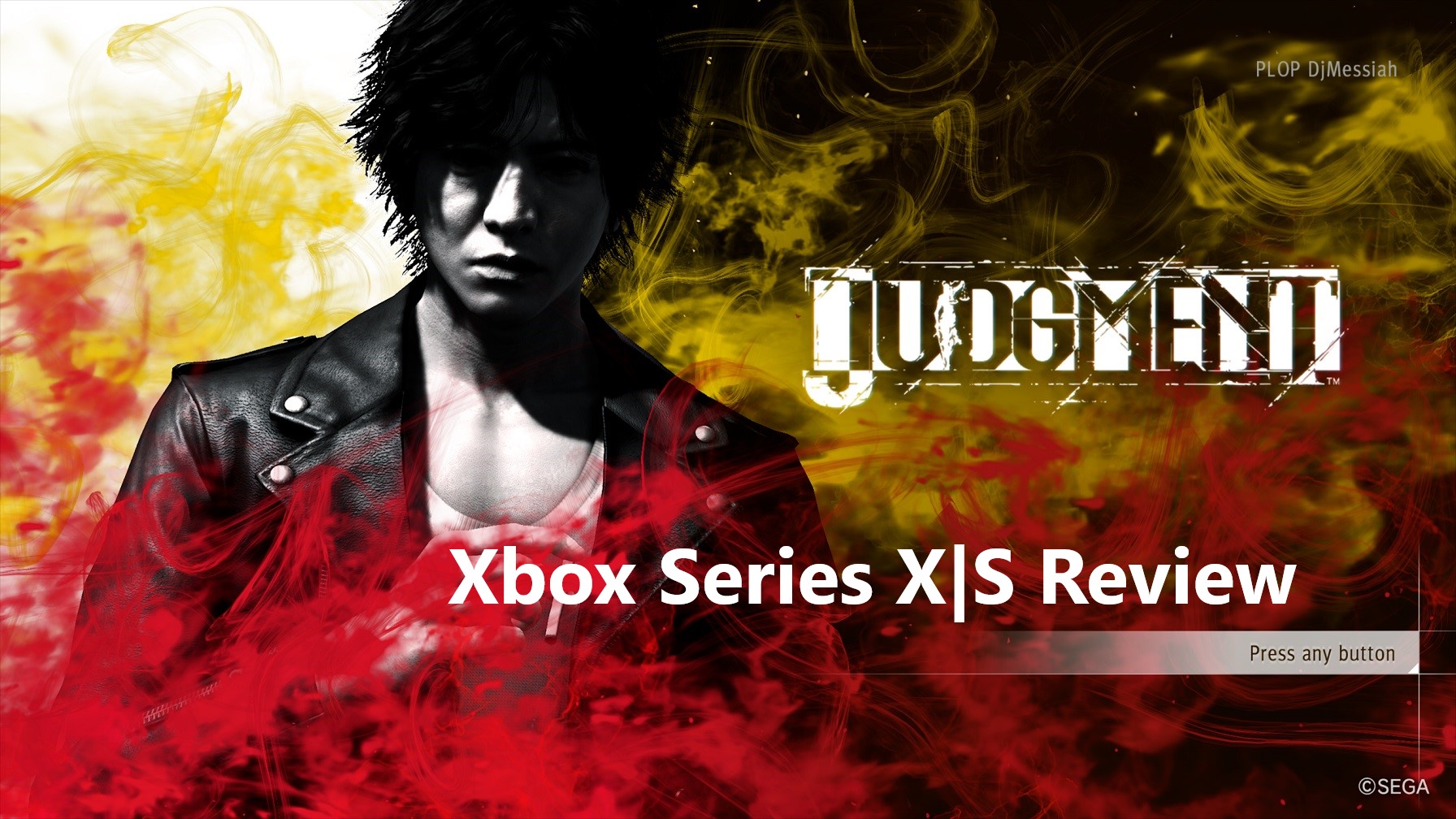Judgment is a masterclass in video-game storytelling
- Developer: Ryu Ga Gotoku Studio
- Publisher: SEGA
- Release date: 23rd April 2021
- Genre: Action-adventure
- Platforms: Xbox Series X|S, PS5, PS4, Stadia
- Reviewed on: Xbox Series X|S
- Game Supplied by: Publisher
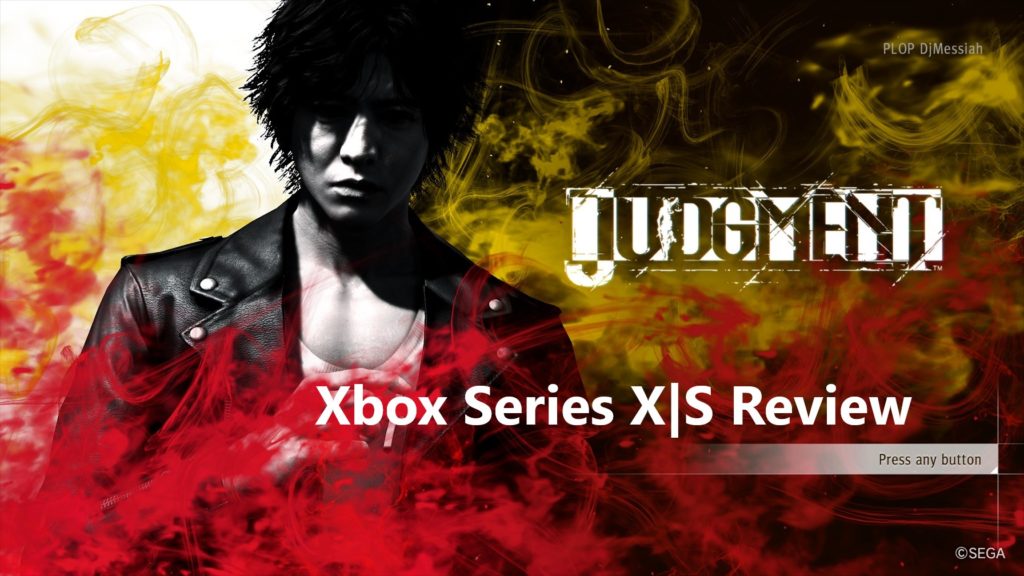
Originally released for the PS4 back in 2019, Ryu Ga Gotoku’s Yakuza spinoff still has all the underpinnings that make it instantly recognizable as part of the franchise but adds enough new elements and a noir twist that allows Judgment to stand proud as a fantastic game in its own right. We are reviewing the remastered version on the Xbox Series X, which improves on the PS4 original thanks to dramatically reduced loading times, 60 fps gameplay and a superior lighting system that breathes life and depth into the stunning city of Kamurocho.
If you enjoyed the Yakuza series you will feel instantly at home in Judgment. The fight mechanics, skills and combat upgrade trees are lifted straight from Yakuza. It’s even set in the same city! The humour is also still present in Judgment, but it’s not as frequent and is juxtaposed by the darker main storyline.
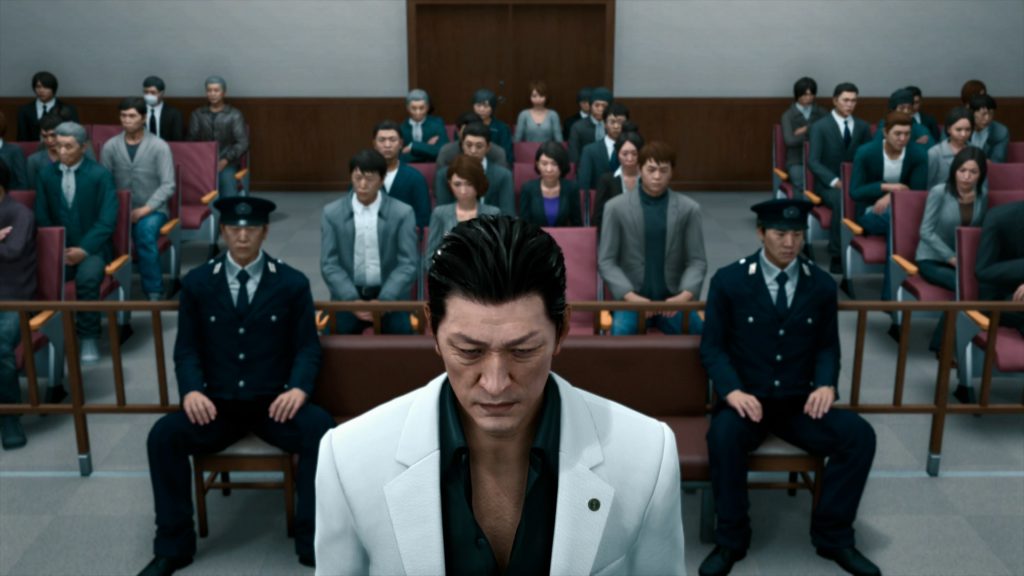
“a deftly crafted tale”
Our protagonist, Takayuki Yagami, is a former lawyer. When a client he successfully defended in a murder trial commits murder again, Yagami is consumed by guilt, turning his back on the profession. Flash forward three years, we find Yagami is now a private investigator and soon becomes embroiled in the investigation of a series of grisly murders.
What follows is a deftly crafted tale, that effortlessly weaves intrigue into a complex ‘who dunnit’ story with more twists than an M. Night Shyamalan movie. Where Judgment excels is in avoiding the common mistake of spoon-feeding the story to you. Each chapter and case you take on gives you time to think for yourself, weigh up the evidence and reach your conclusions. Speech prompts during conversations give you avenues of investigation to pursue, that rewards you with XP if you’ve been paying attention to the clues and select sensible questions. While you can’t directly affect the outcome with your actions, the way the game immerses you into the character of Yagami makes you feel like you are actively solving these crimes.
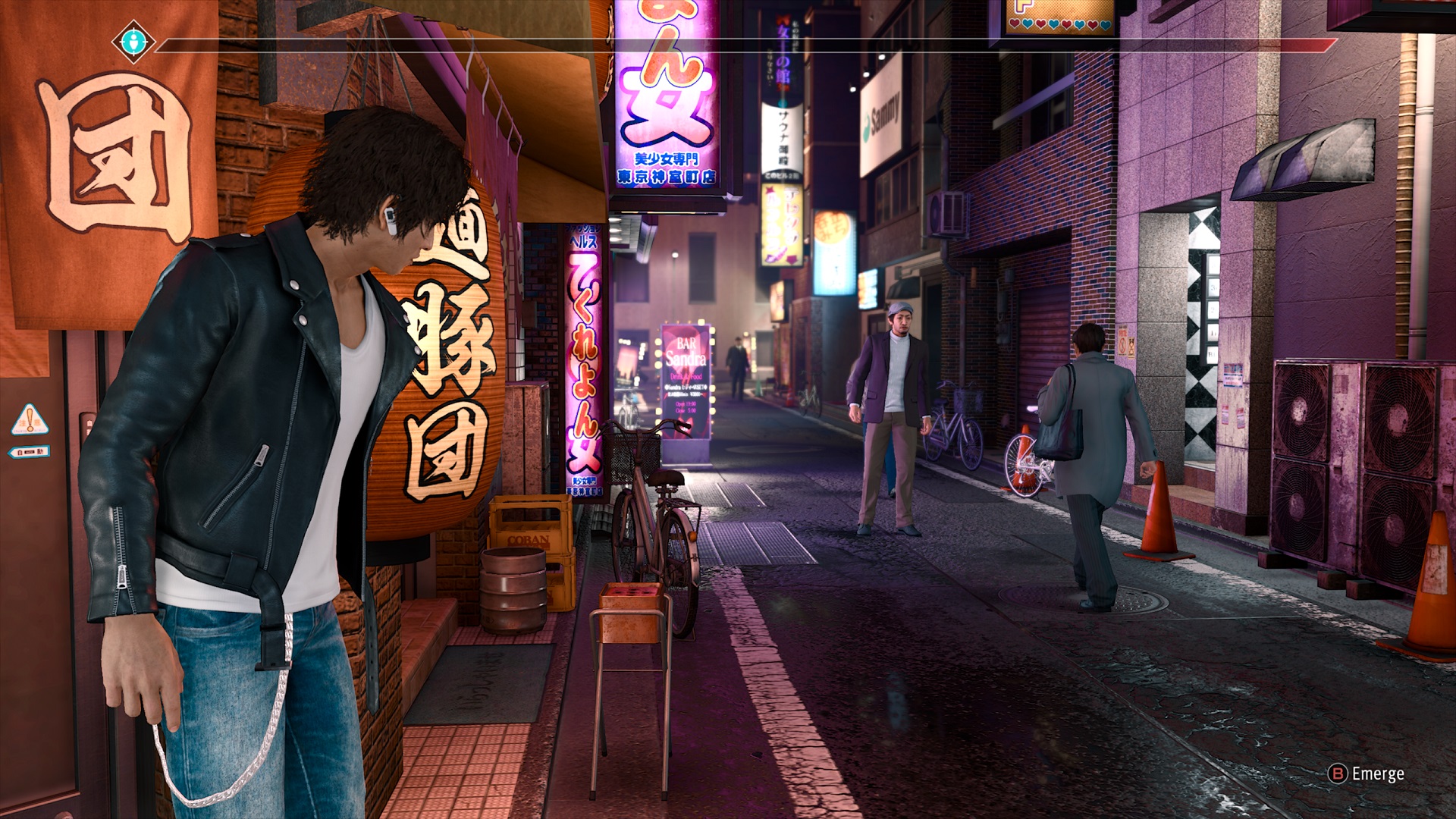
It’s these investigations that give Judgment its distinct flavour. Whereas Yakuza is all about going in fists first, Judgment often has you avoid conflict, and this is where many of the new gameplay mechanics come in. Investigations can include scanning an area for clues, picking locks and finding access codes, interviewing witnesses, sneaking into buildings or using your drone to spy on a suspect. Some of these mechanics are a little old-fashioned, though, such as unlocking doors, which involves tried and tested controller jiggling. For the most part, they are quite entertaining and just on the right side of challenging, especially with the added pressure of a timer.
In a nod to its gaming heritage, Judgment has quite a few QTEs (quick time events). As much as I normally detest QTEs, these have a generous activation window, so they aren’t a punishing test of your reflexes that force you to retry the same sections over and again. They show up most often during chase scenes, where you charge around on foot after suspects, leaping over and dodging obstacles, and in mid-fight cutscenes, usually accompanied by a healthy dose of gratuitous violence, which makes them much more enjoyable.
Whoo-pah!
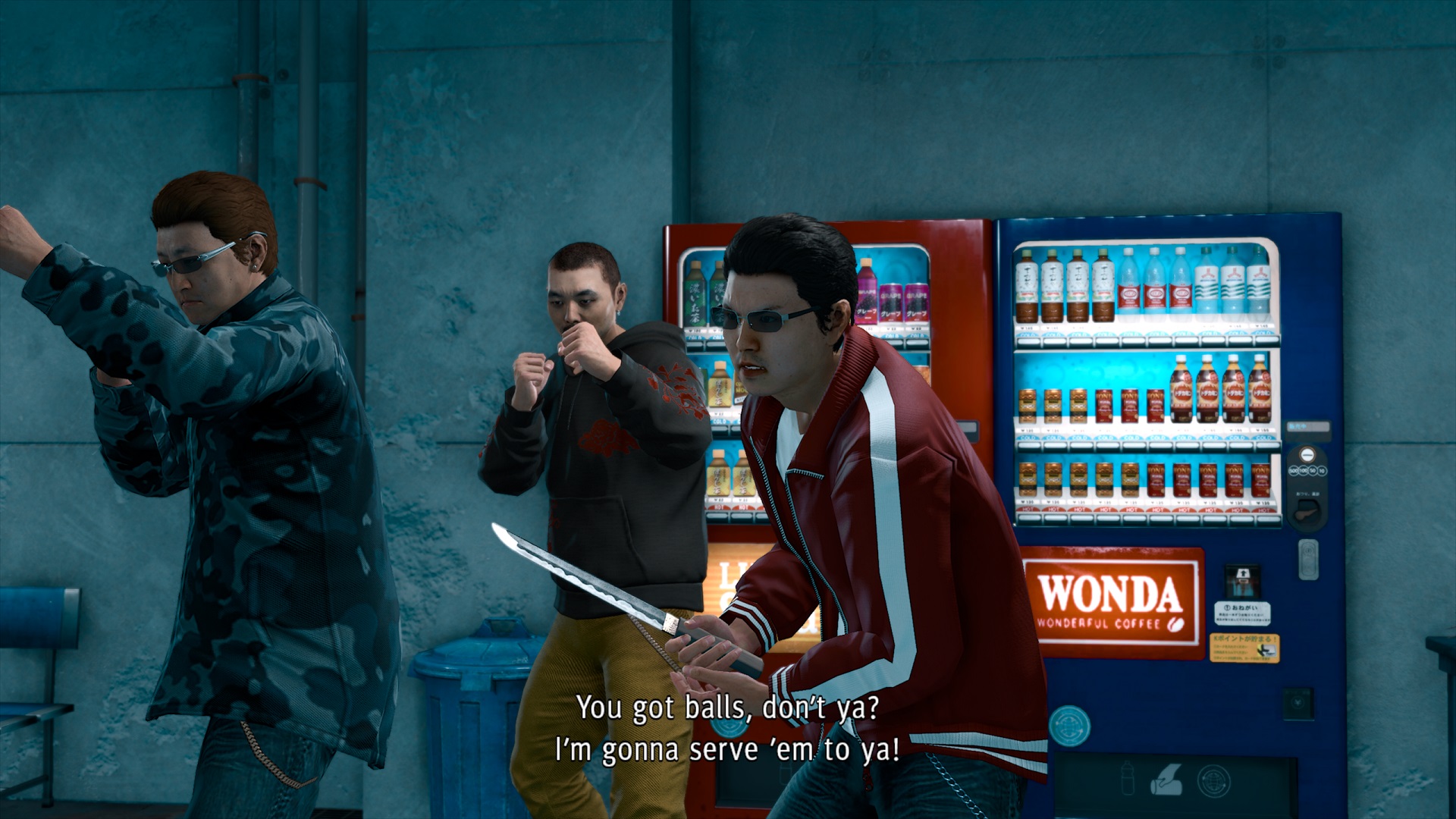
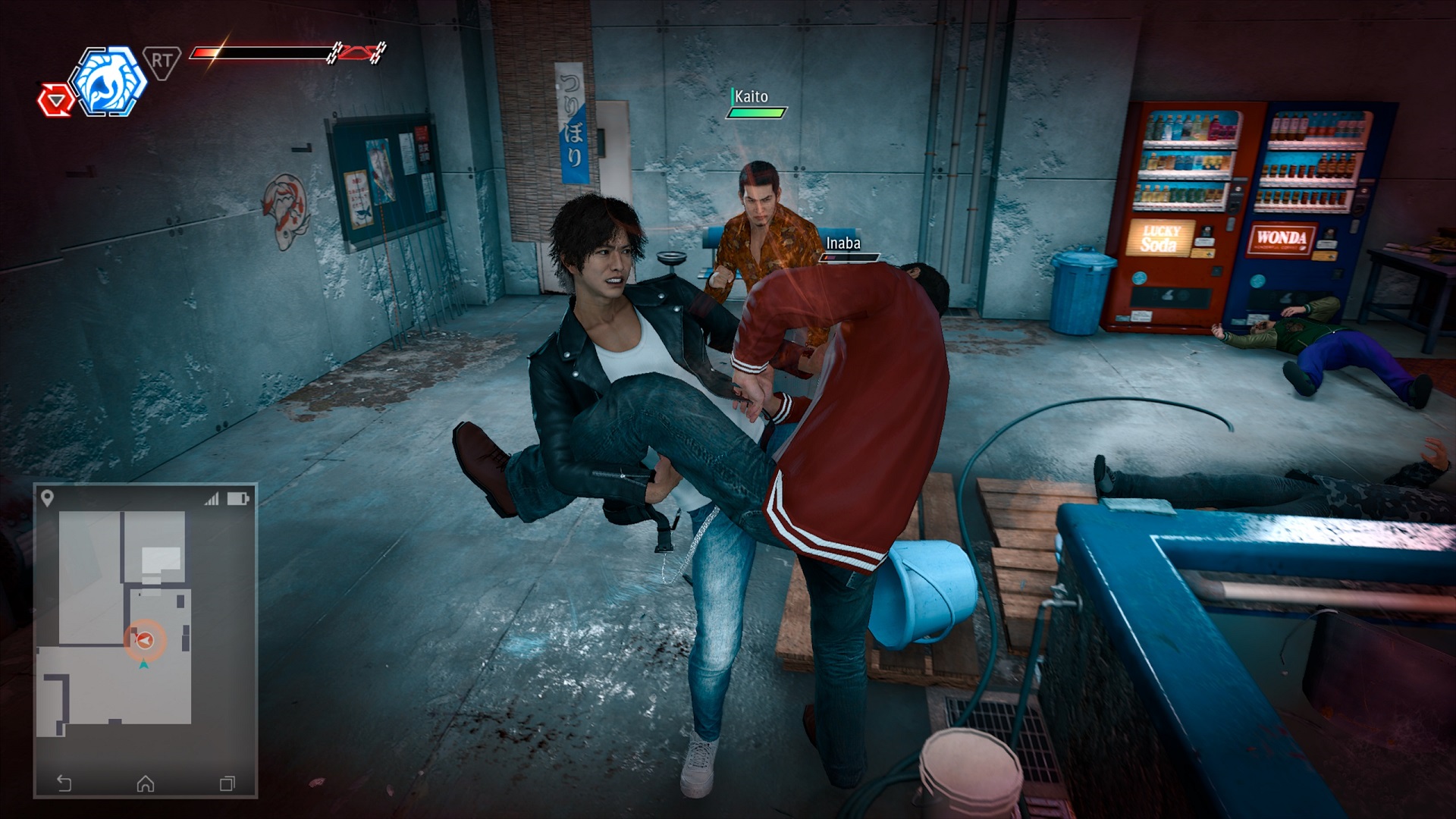
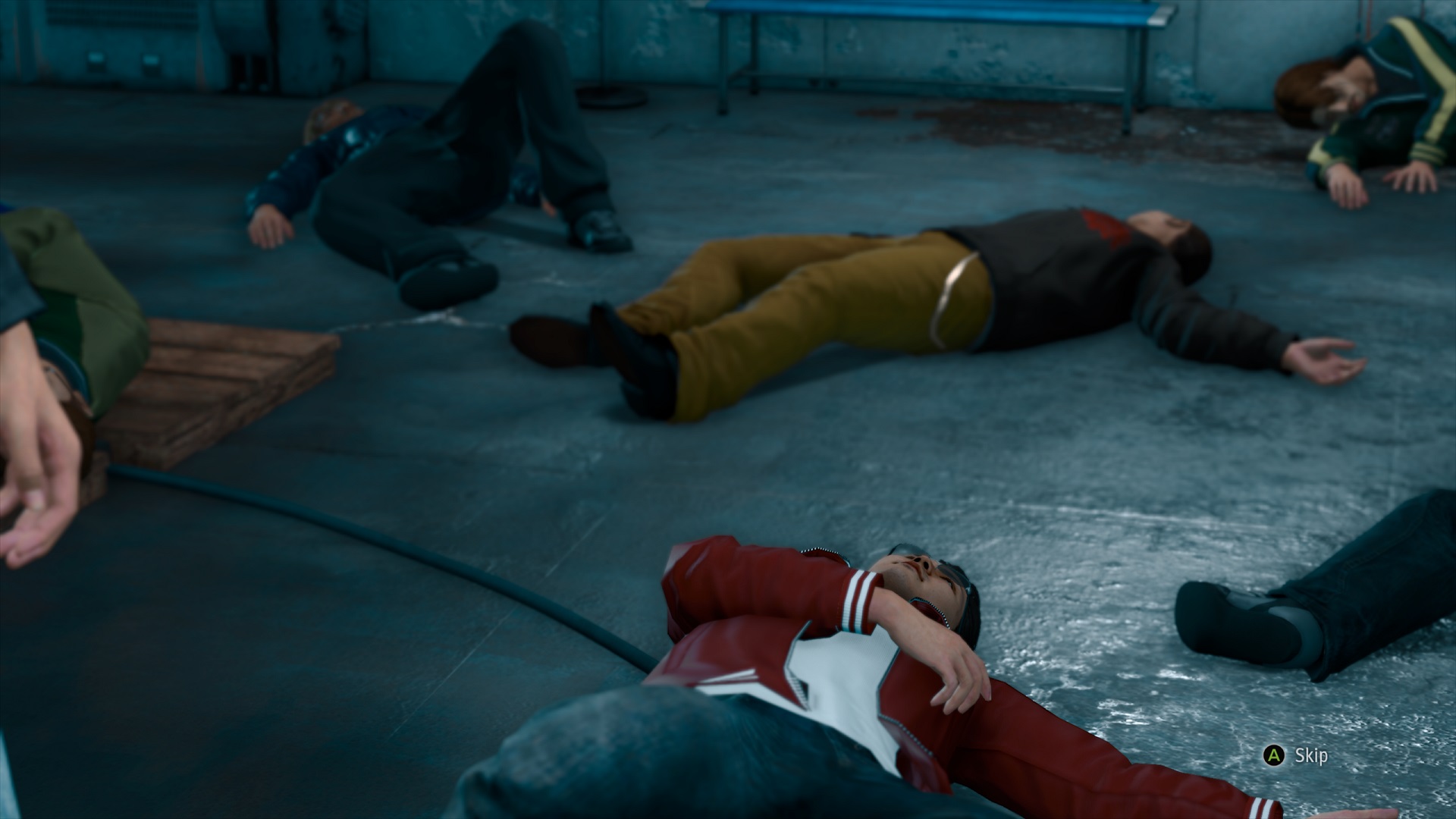
Much like Yakuza, the violence is graphic, and the combat extends far beyond basic button mashing. You have two stances, one that allows you to carry out area of effect kicks useful for dealing with groups of enemies, and another that focuses on fast strikes for tackling single or tougher enemies. At first, you only have a limited skill set, but there are tonnes of new moves to learn, either through purchasing them or by finding skill books around the game world. Once you get to grips with it, the combat is gratifyingly intense, and although it’s not quite as smooth as the free-form combat of the Batman Arkham games, it works very well in the context of the game.
It’s not all attacking, though; Dodging, grappling and blocking are essential skills to master. Whilst damage taken in combat can be remedied with a meal at one of the dozens of restaurants in Kamurocho or by using a health powerup, tougher enemies wield weapons like Katanas that leave you with mortal injuries that cannot be healed with standard consumables, and limit your maximum health. These can be healed by visiting a doctor, but in the middle of a big fight, this might not be possible. This is why it’s important to keep well stocked up on consumables you can find in shops or dropped by enemies.
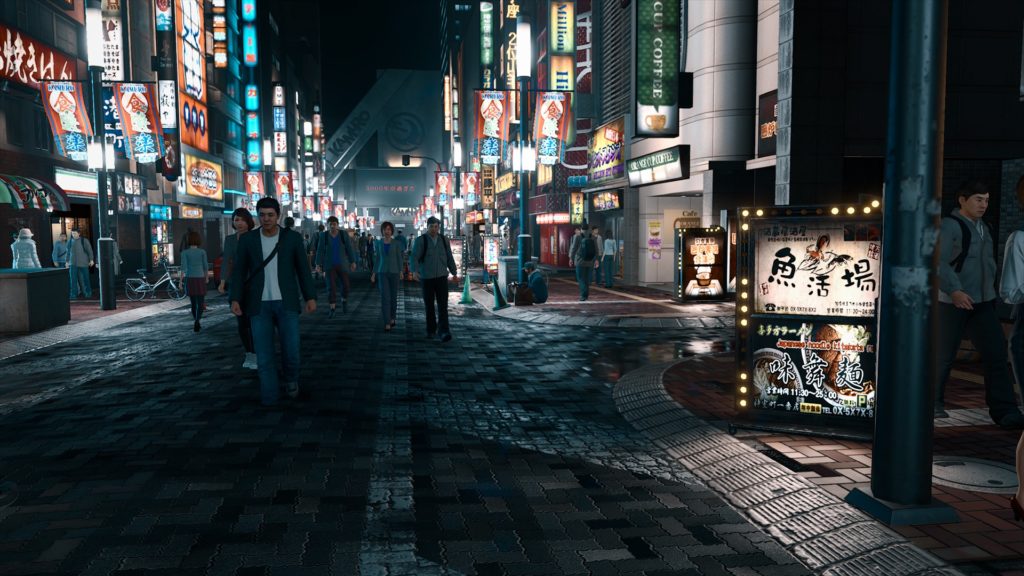
Judgment is played primarily in third-person, however, it’s possible to navigate much of the game in first-person if you wish. I found it a much better way to observe and navigate the surroundings, giving a smooth viewpoint and standard FPS-style movement. In third-person view, the camera tends to swing round in the direction you are moving. When combined with significant motion blur and an auto-recentering camera, it makes it harder to appreciate just how detailed and beautiful the game looks. The only major downside to the first-person camera is that it seems to be placed up above your head, and not at Yagami’s eye level.
A living, vibrant world
Outside of the main missions, Judgment is crammed full of things to discover and do. There are arcades filled with playable classic Sega games and claw-grabber toy machines, batting cages, a VR centre, interesting side-cases you can finish to earn some extra cash, relationships to pursue, and the excellent drone racing, which is better than some standalone drone racing games I’ve played, such is the depth of customisation and quality of its gameplay. This is of course normal if you’re used to Ryu Ga Gotuko games, but for anyone new to the series, prepare to be awed at how much interactivity has been put into Kamurocho.
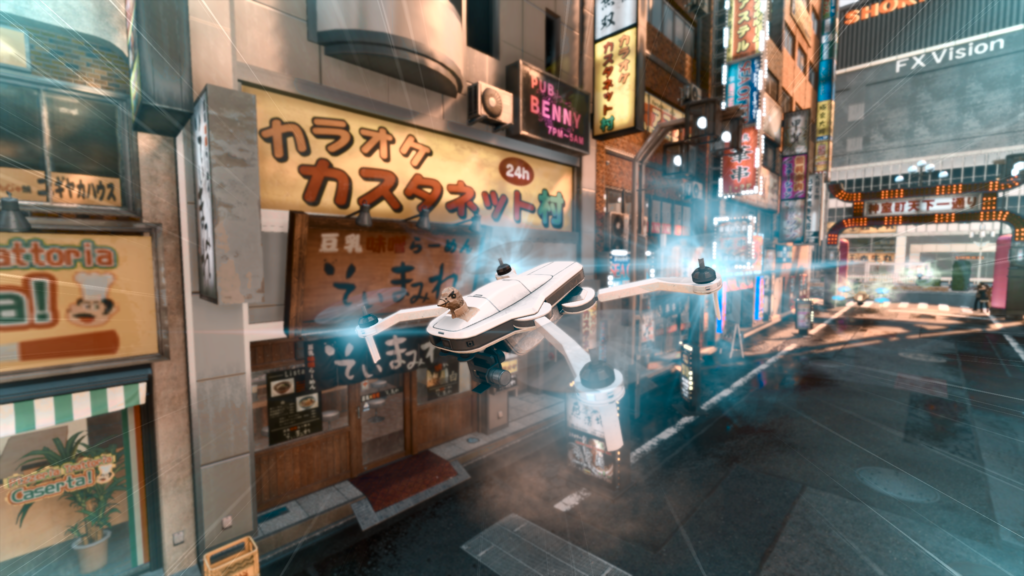
A huge part of what makes Judgment so engrossing is the excellent voice acting. It is fully dubbed in English by an excellent cast, and although it’s a little jarring at first to hear the Japanese characters speaking with American accents, once you get past this you can appreciate the quality of their work. There is still overuse of Americanisms like “y’all”, but it isn’t hard to overlook. For purists, the original Japanese audio is still there, but I found the English dub to be of such a high standard I didn’t use it other than to quickly hear the characters’ ‘real’ voices.
Adding further immersion is the incredible audio. There’s a constant hubbub of sound around you as you explore the city, and the incidental music is first-rate. Muffled Japanese pop songs can be heard coming from the clubs as you pass them, muted basslines pumping in well-mastered surround. Step into investigation mode and there’s a classic detective-movie-style score, with musical stings when you locate a clue, while combat has an up-beat trap/dubstep vibe that perfectly complements the action.
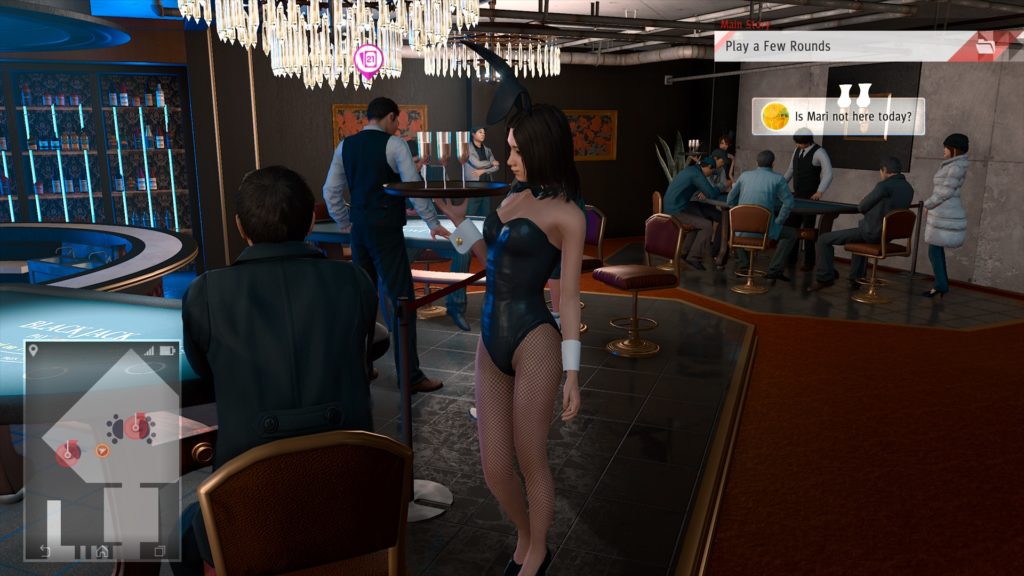
If you purely restrict yourself to the storyline, there’s a good 30+ hours of gameplay on offer, but if you allow yourself to become lost in the world of Judgment, you can easily spend double that tackling the multitude of experiences it has to offer. The icing on this delicious cake, though, is the price; Judgment is just £34.99/$39.99 on the Xbox Series X|S and PS5. When you weigh that price up against the quality of the story and attention to detail that has been lavished upon this game, it’s easy to recommend this game as a must-buy for any fans of open-world action-adventure games.
Summary
The engrossing storyline and excellent voice-acting mark Judgment out as equal to, and in many ways better than, the Yakuza series that spawned it. It feels instantly familiar if you’ve played any of the Yakuza series, without ever feeling like you’re just retreading the same old game.
In terms of the remaster, Judgment doesn’t look massively different, but the improvements it has are significant. It now runs at a smooth 60 fps, and the often long loading times that hampered the PS4 version have been all but eliminated, with transitions between levels, cut-scenes and taxi rides happening in just a few seconds. It was a great looking game anyway, but the smoother action and darker, more realistic lighting makes this a gorgeous world to get lost in.
